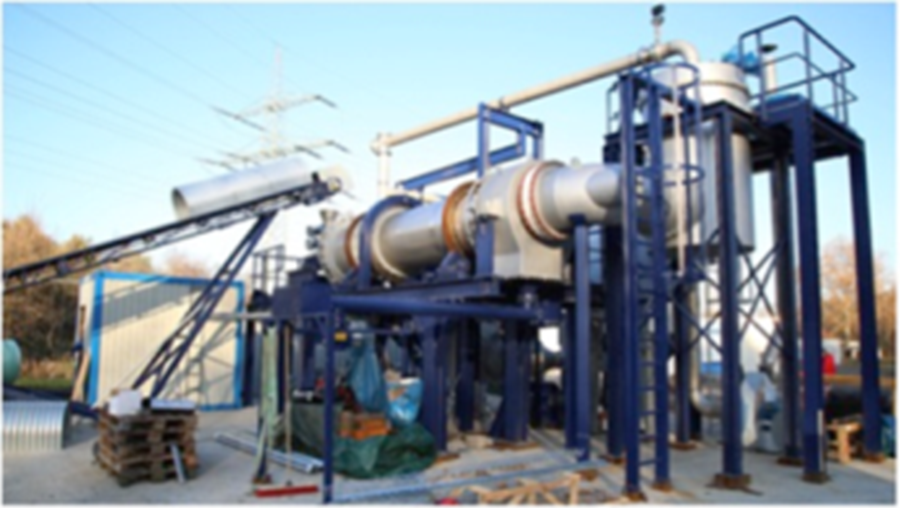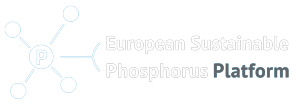Process & contact
Updated 28/12/2021

Photo: Phos4You pilot plant, Dinslaken, 2020
Input materials
Dewatered sewage sludge.
Phosphorus rich biomass.
Output products
Phosphate-containing ash which can likely meet the heavy metal limits of German and EU fertilisers regulations, depending on input ash quality.
Carbon content of ash is < 1% (total carbon).
Iron content of output ash product at Dinslaken pilot is c. 7% Fe. Aluminium is pending analysis.
Process description
The EuPhoRe process uses a specifically-designed rotary kiln incinerator. Flue gas, either from e.g. separate solid waste incineration, or from the EuPhoRe process itself, is used to dry sewage sludge, and to ensure reducing conditions in part of the reactor. The kiln also has an oxidation zone at up to 1000°C (ensuring elimination of organic contaminants).
Depending on the input material quality, alkali- and/or earth-alkali chlorides may be added for reduction of part of the metals content and removal (as chlorides) into the gas phase.
Heavy metals are extracted from the flue gas to a waste stream. All other minerals, including iron and aluminium, remain in the ash.
> 95% of P in input sewage sludge is recovered in the final ash product.
70% – 90% of P in the ash product is soluble in 2% citric acid. Solubility in NAC not specified. In pot trials 80% fertiliser efficiency at soil pH of 7.4 compared to TSP
Selected indicative % removal of heavy metals, e.g.
- 20 – 40 % for Cu
- 35 – 65 % for Zn
- 90 – 95 % for Cd, Hg, CrVI
- 85 – 95 % for Pb
- 45 – 65 % for As
Operating status
Pilot plant: Dinslaken Germany (Emschergenossenschaft): 100 kg dewatered sludge/hour wet weight input (photo)
Two industrial scale plant are planned in Germany at Offenbach (100 000 t/y) and Mannheim (135 000 t/y), plus several other projects are planned in Europe.
